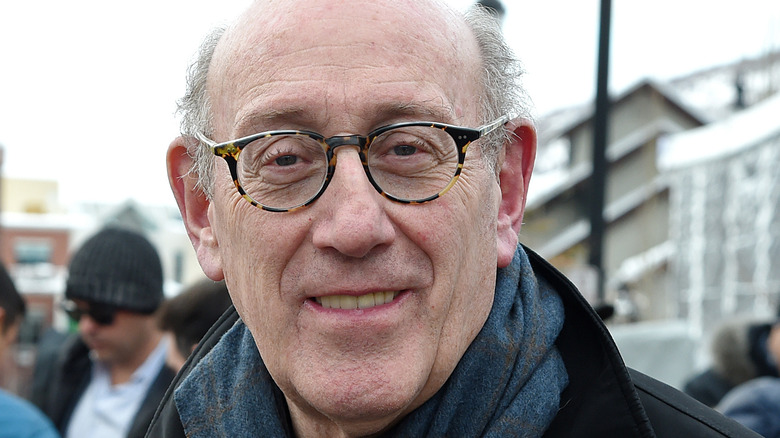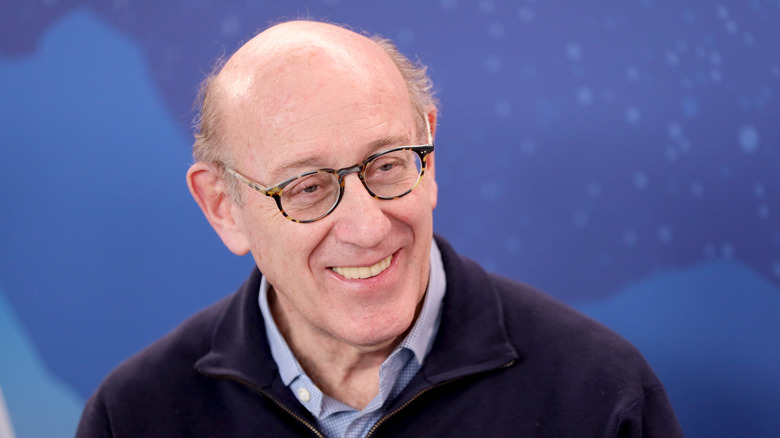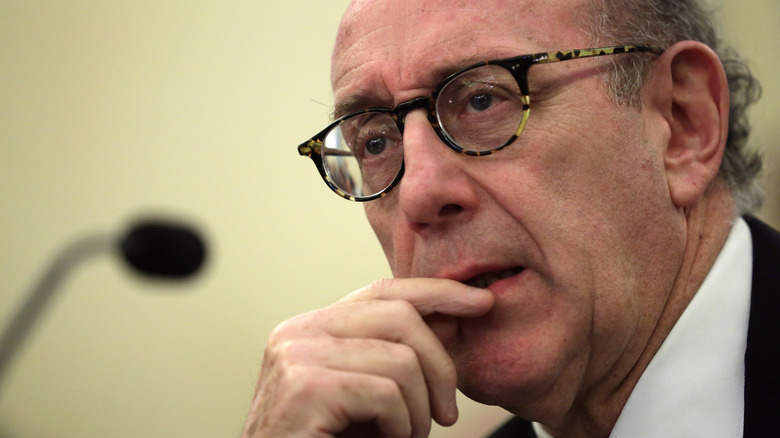Kenneth Feinberg: The Truth About The Lawyer Who Helped 9/11 Victims
The September 11, 2001, terrorist attacks weren't just a human tragedy, they were an economic one as well. Although nearly 3,000 people died in the series of coordinated attacks, an untold number of others were victimized by injuries and illnesses sustained by breathing toxic dust and fumes released in the attacks. Further, many people lost spouses as a result of the attacks and many children were left without a parent. All of those victims and their families would require monetary compensation, and it would take the cooperation of multiple agencies, victims, and legal representation from multiple sides, to determine how much money to pay out, and where it would come from.
The man at the center of it all was an NYU-educated lawyer with a history of brokering settlements among groups of victims. Kenneth Feinberg would not just help arrange a victims' compensation fund, but he would also be a trendsetter in the emerging legal field of large-scale settlements, according to Esquire.
Kenneth Feinberg negotiated a settlement for Vietnam veterans
Back in the 1980s, veterans who had served in the Vietnam War were demanding that the chemical companies who produced Agent Orange, an herbicide used extensively during the conflict, compensate them for their injuries. Specifically, according to the Veterans' Administration, veterans who had been exposed were experiencing serious illnesses as a result of their exposure to the dangerous herbicides. However, the two sides were miles apart, according to Esquire. "The veterans asked for $1.2 billion. The chemical companies made their counteroffer: $25,000, total," Feinberg would later say of the situation.
Judge Jack Weinstein, who knew Feinberg from law school, invited his colleague to help negotiate the settlement. Though Feinberg wasn't able to get the sickened veterans anything close to the hundreds of millions of dollars they wanted, he was able to get the chemical companies to budge quite a bit; in an 11th-hour deal, he negotiated a settlement that saw the manufacturers paying $250 million into a victims-compensation fund.
Feinberg set up the 9/11 victims' compensation fund
In the legal world, there's a term that refers to when a lawyer refuses to be compensated for their work and instead does it for the greater good: pro bono publico, Latin for "for the good of the public." And Feinberg, according to Stanford Law School, worked pro bono for two-and-a-half years to get the 9/11 victims properly compensated.
It was agonizing work for Feinberg, as he later wrote in his book, "What Is Life Worth?" As The New York Times reports, the lawyer had to balance the devastating human cost of the 9/11 attacks with the cold realities of legal compensation, effectively evaluating lives and assigning dollar figures to them. That put him in situations such as having to tell the widow of a firefighter that her husband was worth less, at least monetarily, than a stockbroker. Similarly, he also had to make agonizing decisions, such as excluding parents of children killed in the attacks from receiving any compensation funds.
When all was said and done, Feinberg secured more than $7 billion, to be paid out to 5,560 victims and their families.
Feinberg is now an expert in the field he helped create
These days, Kenneth Feinberg is considered one of the go-to experts in the legal field of brokering and paying out victim-compensation funds, a field he helped create.
As Esquire reports, he's also helped put together such settlements for victims of the Sandy Hook Elementary School massacre, the Boston Marathon bombing, the BP Deepwater Horizon oil spill, and the Penn State sexual abuse scandal, among others. As of September 2021, Feinberg is 75 and seemingly not interested in retirement, even working on a half-billion-dollar settlement fund for families of individuals killed in the 2018 and 2019 crashes of the Boeing 737 Max airplanes. Further, he's written two books, including the aforementioned "What Is Life Worth?" as well as "Who Gets What: Fair Compensation after Tragedy and Financial Upheaval." He's also keen to see the federal government get involved in compensating victims of large-scale tragedies, telling NPR News in 2020, "It's long overdue that national policy take into account the long-term adverse impact of tragedy, both individual and collective."



